I tried Cambridge Audio's 'Special Edition' headphones and everything that made the originals great is here, but one new perk surprises me
I literally had to stick tape on one set, to keep tabs on which was which
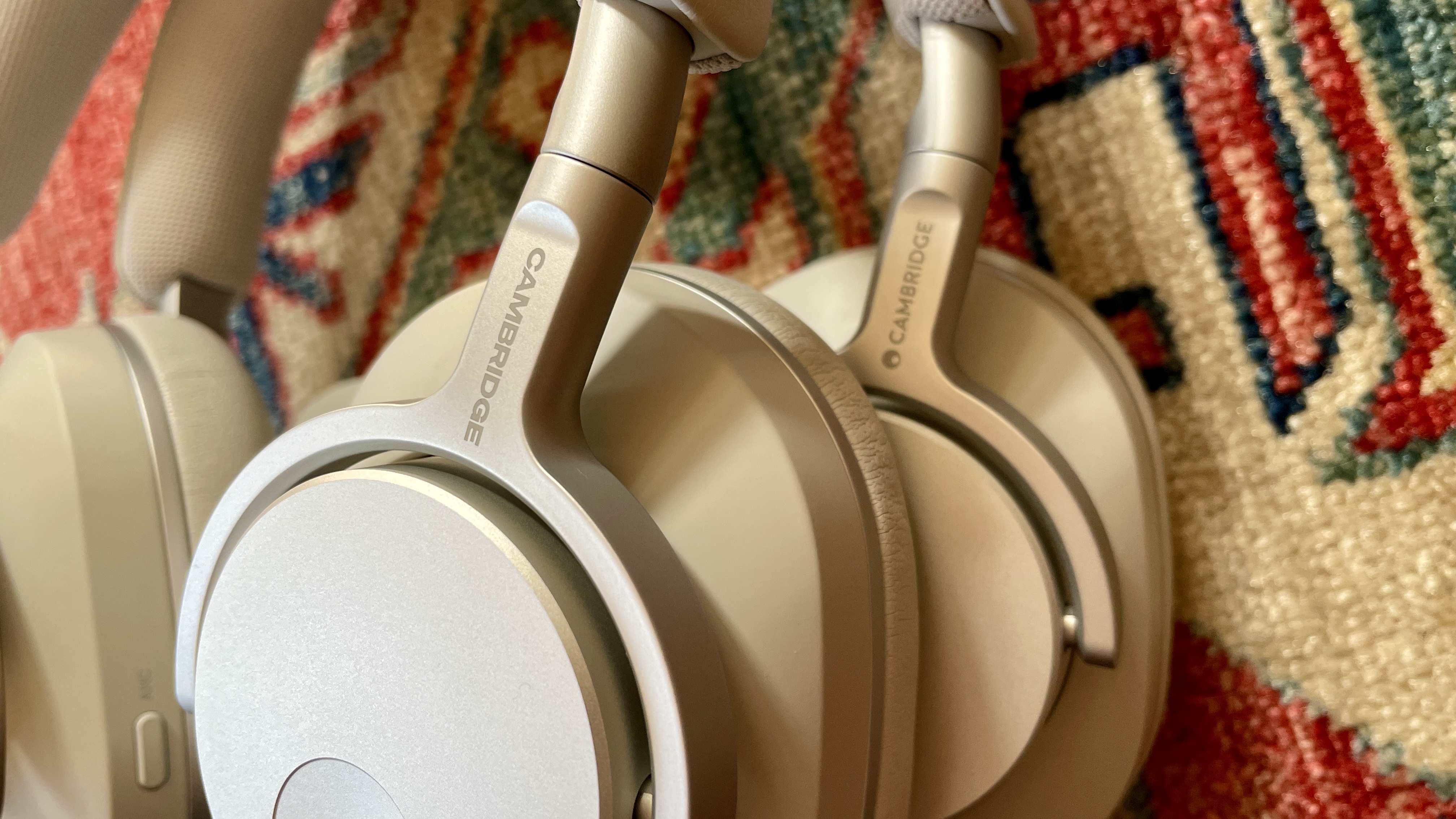
Cambridge Audio's inaugural July 2024-issue headphones are not your average set of cans. Aside from being seriously sonically special, they boast the best battery life I've ever seen (100 hours without ANC deployed; 60 hours with it) and as our best noise-cancelling headphones buying guide proves, we still rate them as class-leading a year on from their release.
So imagine my surprise when Cambridge Audio organized a set of 'Special Edition' P100s (launching today, August 1) to land on my desk. And furthermore, that these headphones aim to have fixed users' minor issues with the original five-star headphones, the Melomania P100.
I can only conclude that Cambridge Audio isn't one for resting on its laurels, since this tweaked set also arrives barely a month after the UK audio specialist's splendid, also-five-star Melomania A100 earbuds.
So what's new, how do they compare and why didn't they send me a new blue set? Let's get into it…
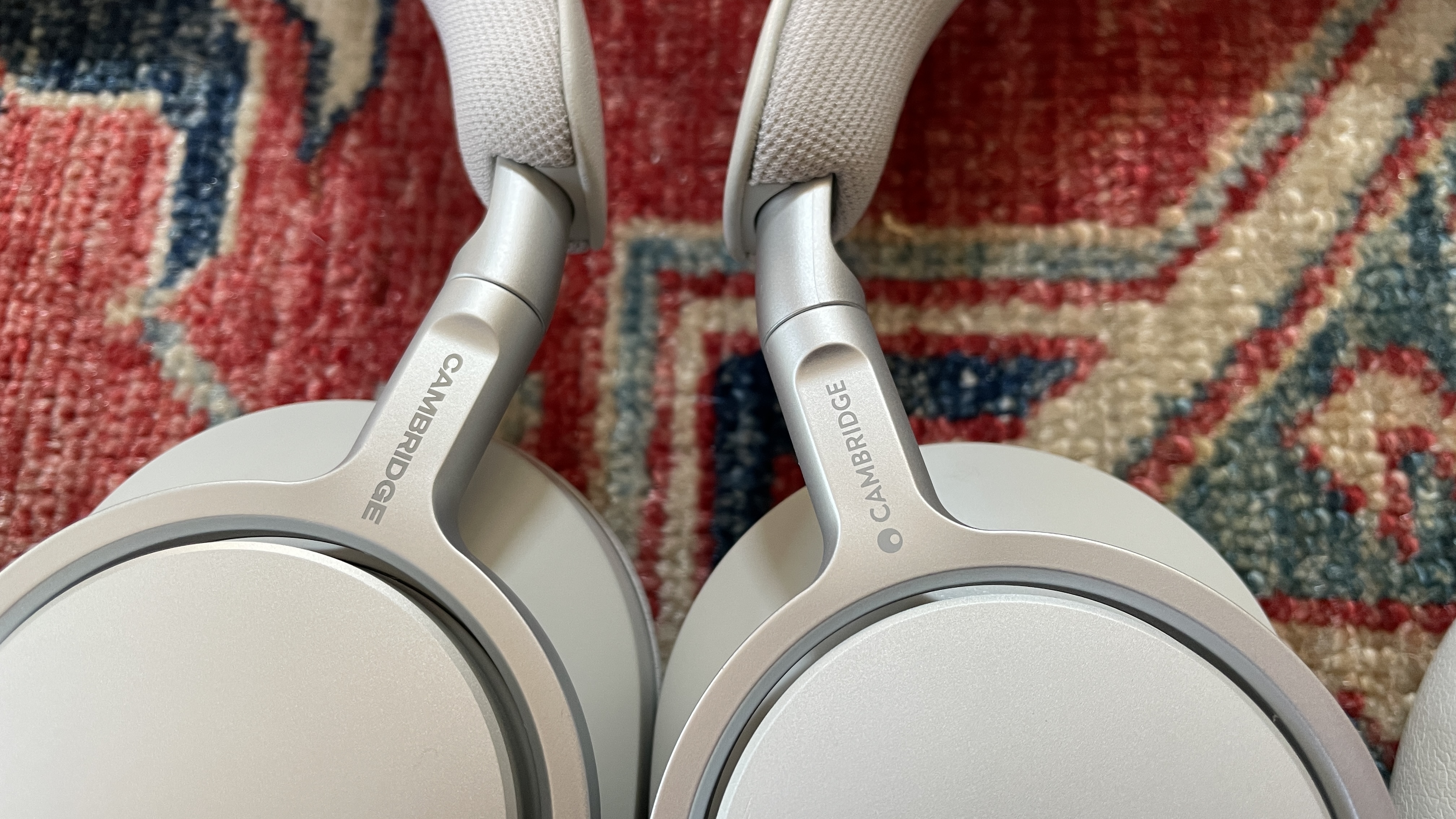
Subtle details
Ready for a game of Spot the Difference? The branding font on the metallic part of the arm is slightly bolder on the new special edition set, and is written the other way up. Gone here is Cambridge's concentric circle logo, which I think is a shame since it's still echoed on the ear cups and case (and on all of Cambridge's other current lineup of products, to be honest).
These visual tweaks are very hard to spot, to the point that I had to stick Scotch Tape (Sellotape in the UK) to the older set to stay organized in my listening.
The updated headband? While it looks identical to that of its sibling, press it and it actually squishes down a little less (technical term), a fact that initially disappointed me. However, this new set does feel comfier and marginally lighter across the crown of my head when worn.
Sign up for breaking news, reviews, opinion, top tech deals, and more.
I'll be honest, I never had an issue with the comfort of the original P100, but my other half wears them too and he has said they occasionally feel like they're bearing down on his head a little. Cambridge clearly got this feedback from its fanbase and chose to do something about it; fair play.
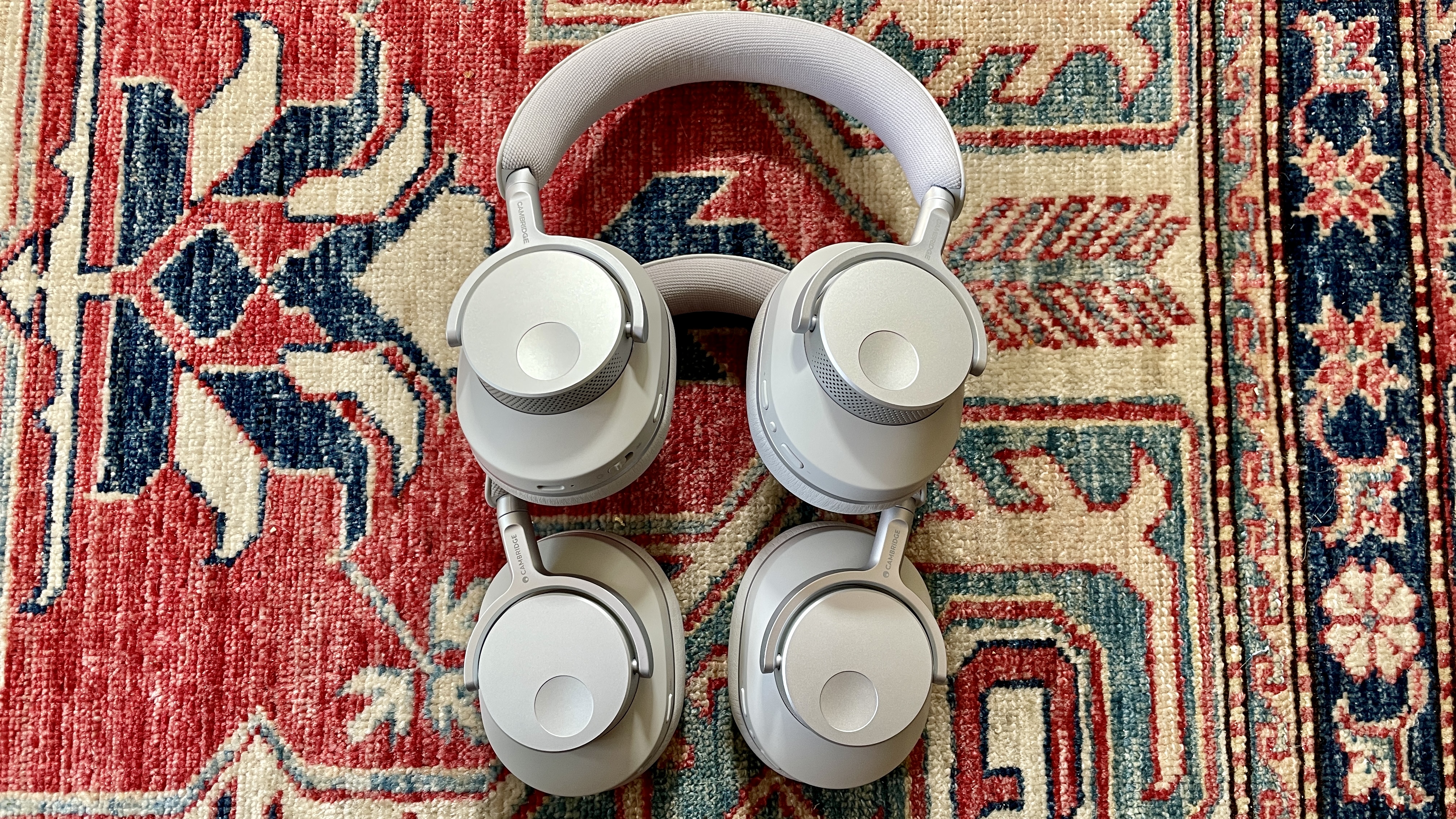
As has often been the case with slight product updates (and also sometimes fairly large ones), I was initially unable to pair the P100 SE to devices that I'd previously also paired with the original P100, until I forced said source devices to 'forget' the inaugural model, paired the new set, then re-connected the older set once the dust had settled.
This still wasn't foolproof and made direct like-for-like comparison difficult, both sonically and in terms of the in-app experience. But that's my job and I achieved it in the end.
The Melomania companion app is the same one you use for the P100, but it's been refreshed, with one key addition. Directly below the product picture on the Headphones home screen, above the ambient noise control tabs, you'll now see the option to deploy DynamEQ that wasn't there before. You do also get this with the new A100 earbuds, but the original P100 aren't on the guest list.
The new DynamEQ feature, Cambridge states, automatically adjusts bass and treble to maintain a full and natural sound at low volumes. Reading between the lines then, has the company been told that the P100 are a little, well, too quiet in noisy environments? Is that integrated, hi-fi tuning I love so much coming off a little flat and unexciting to some listeners? It's possible, I suppose, given the notable market penchant for exciting, zealous, hit-me-in-the-feels style tuning of rivals.
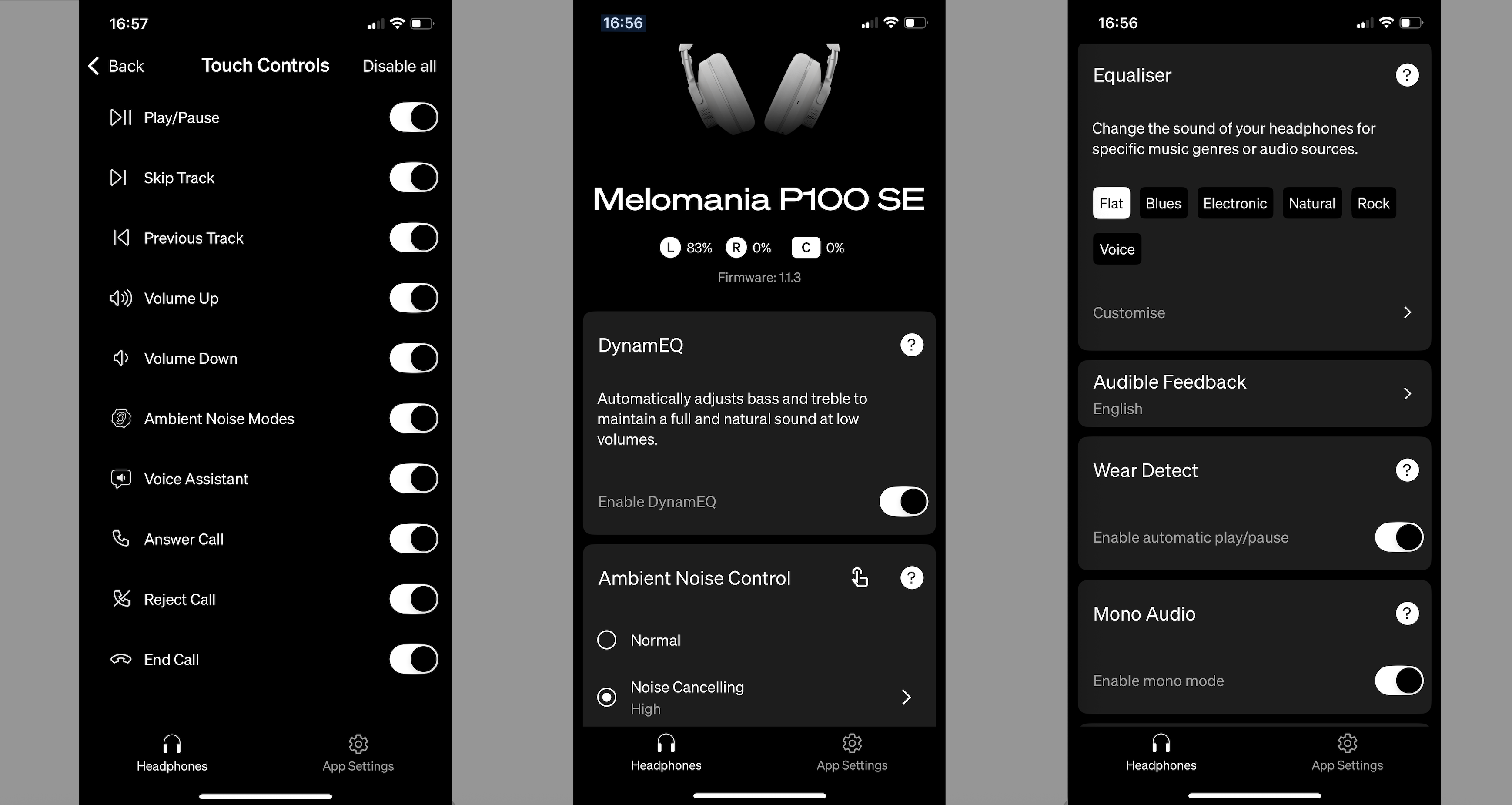
The bigger stuff
Again, I've never felt the P100 lacking in energy or oomph, but I don't tend to listen in very noisy environments for long except when testing, and because I value my hearing – I need it in this job – I rarely listen at high volumes for extended periods of time. That said, in the name of research, I listened to the original P100, then switched out to the SE set, deploying DynamEQ while listening to Gunna's One of Wun with the EQ still set to 'flat' on both occasions.
I struggle to support any claim that the originals come off quiet. Push the older P100 volume up to near max and I cannot continue to wear them; make no mistake, they go loud.
Switch out to the P100 SE and there is a difference through the dynamics when DynamEQ is on, though. And I'm not necessarily a fan. It's surprising to see Cambridge Audio venturing down this road, because it seems to go against what I've long taken to be the company's ethos at various in-person listening sessions: not to mess with the audio as recorded.
Nevertheless, to achieve this option, the UK firm says it has "meticulously retuned" the P100’s same custom 40mm premium three-layer composite driver with neodymium magnets, matched with hi-fi-grade Class AB amplification, to deliver "a more dynamic sound and greater listening volumes".
Upon toggling DynamEQ, treble and bass is augmented slightly, resulting in a notably more aggressive, forward listen. It is also emphatically still a great listen, if you prefer eagerness and vigor over neutrality, expanse and an extra micron of detail. It's not my preferred recipe, but it might be yours and there's nothing wrong with that.
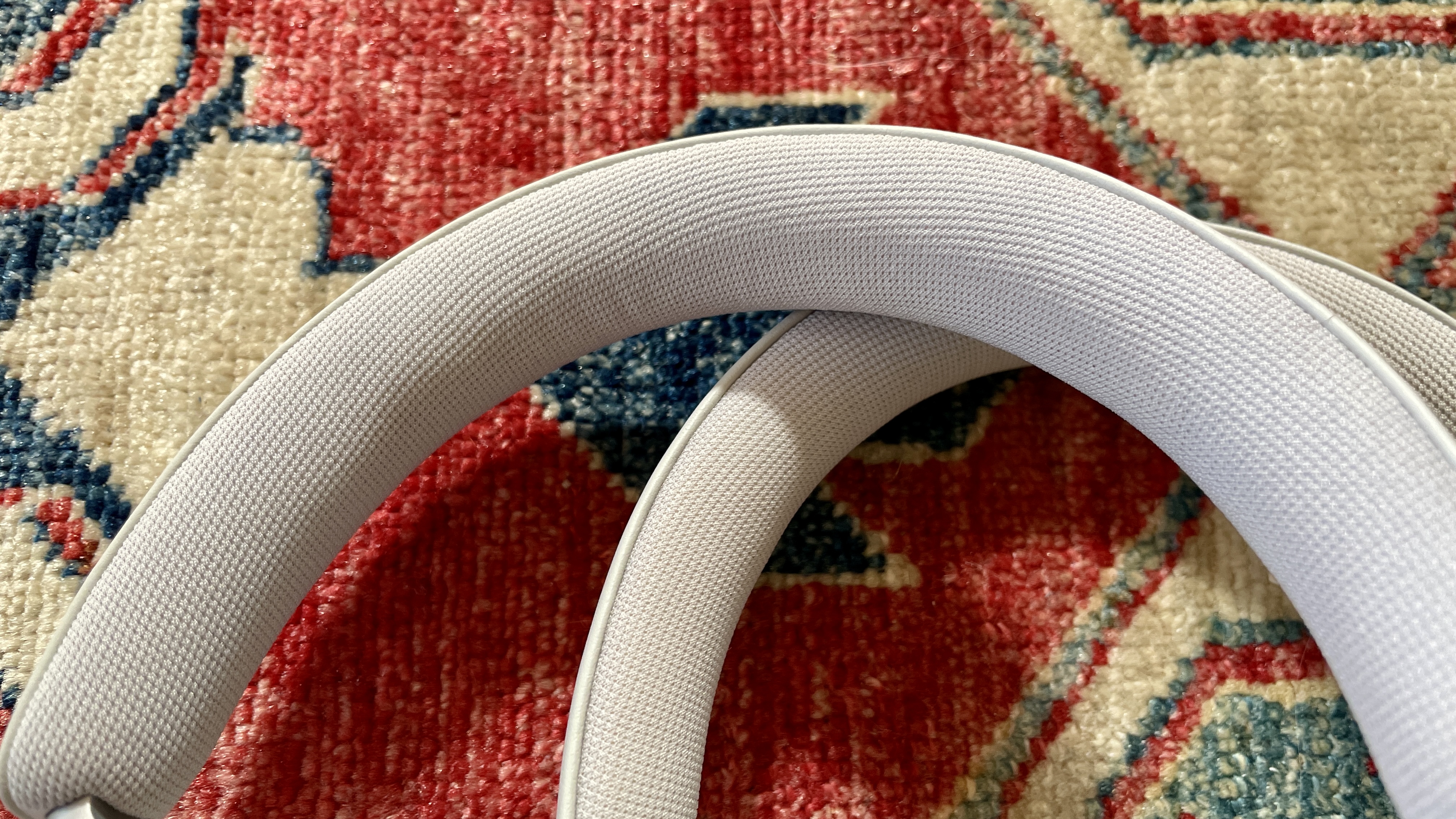
Yes, I can (still) hear you Clem Fandango!
What if you switch CA's new DynamEQ off, but continue with the new cans? Here, you're getting those same innards (the Bluetooth 5.3 chipset is unchanged, as is the acoustic hardware, EQ tab, noise-cancelling profiles and so on), the original audio tuning and – joy! – if you'll only scroll down to 'Southwark' in the Audible Feedback tab, you still get Matt Berry on voice prompts (aka Steven Toast, from the TV show Toast of London).
Pricing for the Cambridge Audio P100 SE? They're available from today, August 1, also in a new blue colorway (no, I was not sent those, so I cannot provide original photographs of them – see me in the gray set, below) priced $299 / £249 / €279 (which is around AU$510, as a guide).
The keen eyed will note that the P100 SE's pricing is a little steeper than the $279 / £229 / AU$479 launch price of the original P100.
Are they worth it? Well, given that the original P100 represent incredible value, it's likely Cambridge thinks the update can sell for a little more – and I won't argue. That said, the non-SE P100 still exist and if you're unbothered by a blue colorway and the few updates mentioned above, I think you can guess what I'm going to say…
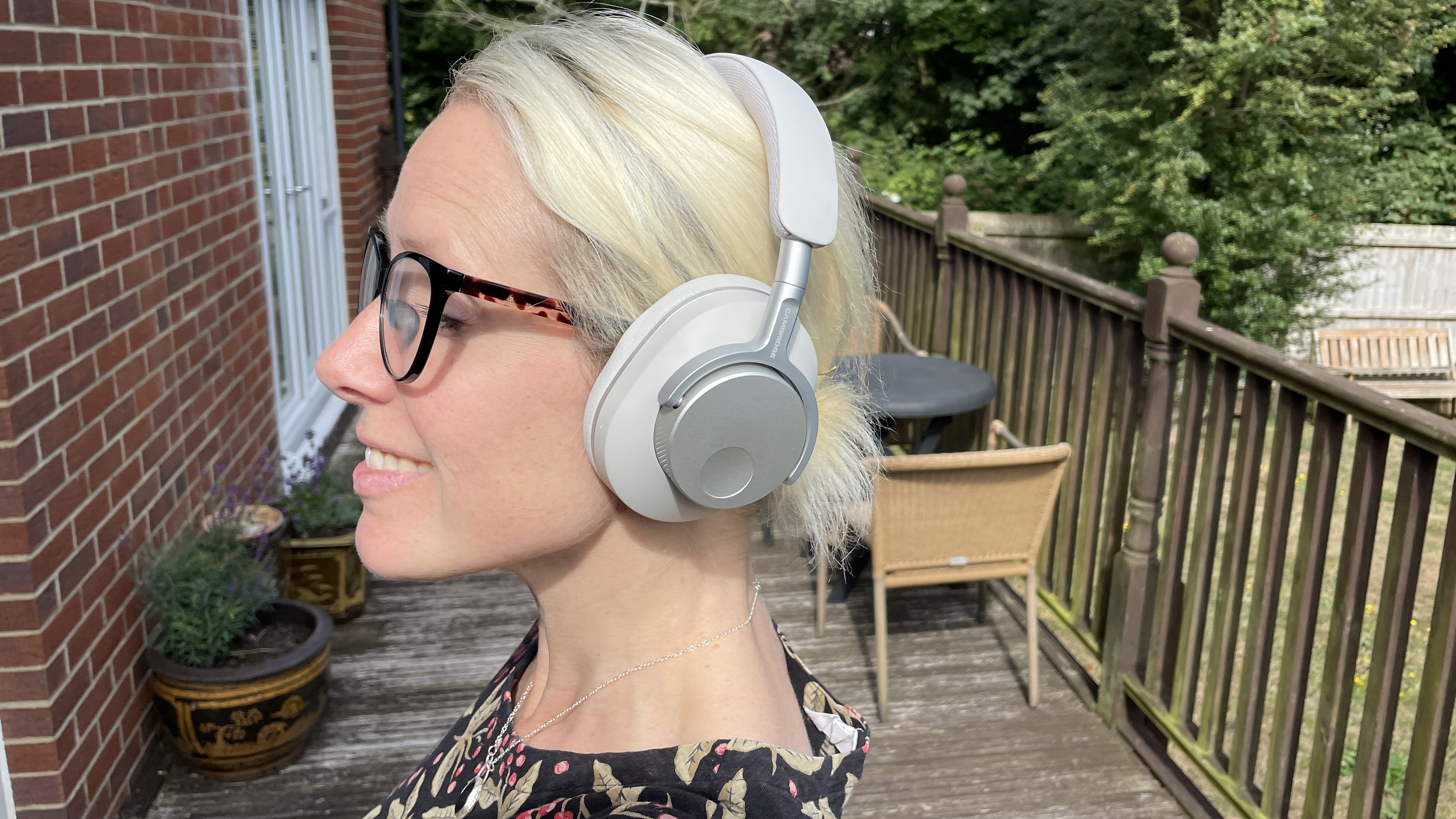
Should you switch?
So, for an extra $20 / £20, you get a blue finish, a slightly cushier headband and a DynamEQ toggle that I honestly would not deploy, because I prefer the original tuning to one that augments the treble slightly and the bass a little more.
Otherwise, you're still getting Cambridge's excellent acoustic architecture. You're still getting its 60-hour battery life (100 hours with ANC off), the solid noise-nixing and support for aptX Lossless and aptX Adaptive playback. You even still get the delightfully different Matt Berry in your ear, telling you about noise cancelling or transparency.
What I'm saying is, everything that made the originals great is still here. Yes, the app has been visually revamped, but that same revamp applies to the older set too – save for the DynamEQ toggle. If you never had a problem with the P100's headband and you like the audio tuning just fine with no additional parlor tricks, I see no reason to buy the newer set. Given the opening sentence of this paragraph, I don't think they warrant an entire review – they would still gain five stars since the headphones are largely unchanged.
In summary, Cambridge Audio Melomania P100 SE are proof that the UK audio specialist is just as crazy about music as it was in the original P100. For me, that means sticking with the originals. That said, if you're considering a new pair of wireless headphones and have yet to be introduced to Cambridge, I can thoroughly recommend the new 'Special Edition' set – because they're an awful lot like the older pair.
You may also like

Becky became Audio Editor at TechRadar in 2024, but joined the team in 2022 as Senior Staff Writer, focusing on all things hi-fi. Before this, she spent three years at What Hi-Fi? testing and reviewing everything from wallet-friendly wireless earbuds to huge high-end sound systems. Prior to gaining her MA in Journalism in 2018, Becky freelanced as an arts critic alongside a 22-year career as a professional dancer and aerialist – any love of dance starts with a love of music. Becky has previously contributed to Stuff, FourFourTwo and The Stage. When not writing, she can still be found throwing shapes in a dance studio, these days with varying degrees of success.
You must confirm your public display name before commenting
Please logout and then login again, you will then be prompted to enter your display name.